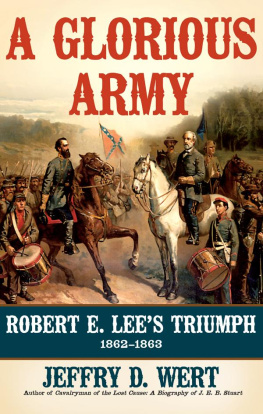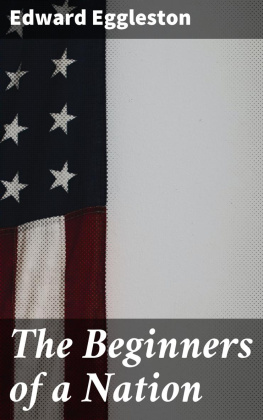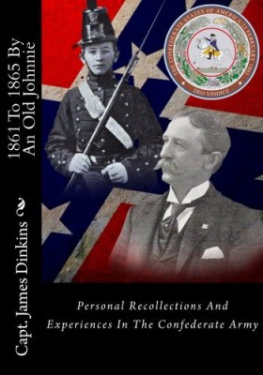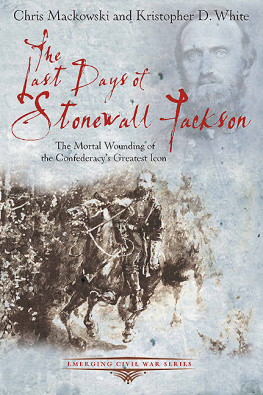PREFACE.
Table of Contents
Lunching one day with Oliver Johnson the best "original abolitionist" I ever knew, I submitted to him the question I was debating with myself, namely, whether I might write this little volume of reminiscences without fear of offending excellent people, or, still worse, reanimating prejudices that happily were dying. His reply was, "Write, by all means. Prejudice is the first-born of ignorance, and it never outlives its father. The only thing necessary now to the final burial of the animosity existing between the sections is that the North and the South shall learn to know and understand each other. Anything which contributes to this hastens the day of peace and harmony and brotherly love which every good man longs for."
Upon this hint I have written, and if the reading of these pages shall serve, in never so small a degree, to strengthen the kindly feelings which have grown up of late between the foemen of ten years ago, I shall think my labor well expended.
I have written chiefly of the things I saw for myself, and yet this is in no sense the story of my personal adventures. I never wore a star on my collar, and every reader of military novels knows that adventures worth writing about never befall a soldier below the rank of major.
G. C. E.
October, 1874.
THE OLD RGIME IN THE OLD DOMINION.
Table of Contents
It was a very beautiful and enjoyable life that the Virginians led in that ancient time, for it certainly seems ages ago, before the war came to turn ideas upside down and convert the picturesque commonwealth into a commonplace, modern state. It was a soft, dreamy, deliciously quiet life, a life of repose, an old life, with all its sharp corners and rough surfaces long ago worn round and smooth. Everything fitted everything else, and every point in it was so well settled as to leave no work of improvement for anybody to do. The Virginians were satisfied with things as they were, and if there were reformers born among them, they went elsewhere to work changes. Society in the Old Dominion was like a well rolled and closely packed gravel walk, in which each pebble has found precisely the place it fits best. There was no giving way under one's feet, no uncomfortable grinding of loose materials as one walked about over the firm and long-used ways of the Virginian social life.
Let me hasten to say that I do not altogether approve of that life by any means. That would be flat blasphemy against the god Progress, and I have no stomach for martyrdom, even of our modern, fireless sort. I frankly admit in the outset, therefore, that the Virginians of that old time, between which and the present there is so great a gulf fixed, were idle people. I am aware that they were, when I lived among them, extravagant for the most part, and in debt altogether. It were useless to deny that they habitually violated all the wise precepts laid down in the published writings of Poor Richard, and set at naught the whole gospel of thrift. But their way of living was nevertheless a very agreeable one to share or to contemplate, the more because there was nothing else like it anywhere in the land.
A whole community, with as nearly as possible nothing to do, is apt to develop a considerable genius for enjoyment, and the Virginians, during somewhat more than two centuries of earnest and united effort in that direction, had partly discovered and partly created both a science and an art of pleasant living. Add to idleness and freedom from business cares a climate so perfect that existence itself is a luxury within their borders, and we shall find no room for wonder that these people learned how to enjoy themselves. What they learned, in this regard, they remembered too. Habits and customs once found good were retained, I will not say carefully,for that would imply effort, and the Virginians avoided effort always,but tenaciously. The Virginians were born conservatives, constitutionally opposed to change. They loved the old because it was old, and disliked the new, if for no better reason, because it was new; for newness and rawness were well-nigh the same in their eyes.
This constitutional conservatism, without which their mode of life could never have been what it was, was nourished by both habit and circumstance. The Virginians were not much given to travelling beyond their own borders, and when they did go into the outer world it was only to find a manifestation of barbarism in every departure from their own prescriptive standards and models. Not that they were more bigoted than other people, for in truth I think they were not, but their bigotry took a different direction. They thought well of the old and the moss-grown, just as some people admire all that is new and garish and fashionable.
But chief among the causes of that conservatism which gave tone and color to the life we are considering was the fact that ancient estates were carefully kept in ancient families, generation after generation. If a Virginian lived in a particular mansion, it was strong presumptive proof that his father, his grandfather, and his great-grandfather had lived there before him. There was no law of primogeniture to be sure by which this was brought about, but there were well-established customs which amounted to the same thing. Family pride was a ruling passion, and not many Virginians of the better class hesitated to secure the maintenance of their family place in the ranks of the untitled peerage by the sacrifice of their own personal prosperity, if that were necessary, as it sometimes was. To the first-born son went the estate usually, by the will of the father and with the hearty concurrence of the younger sons, when there happened to be any such. The eldest brother succeeded the father as the head of the house, and took upon himself the father's duties and the father's burdens. Upon him fell the management of the estate; the maintenance of the mansion, which, under the laws of hospitality obtaining there, was no light task; the education of the younger sons and daughters; and last, though commonly not by any means least, the management of the hereditary debt. The younger children always had a home in the old mansion, secured to them by the will of their father sometimes, but secure enough in any case by a custom more binding than any law; and there were various other ways of providing for them. If the testator were rich, he divided among them his bonds, stocks, and other personal property not necessary to the prosperity of the estate, or charged the head of the house with the payment of certain legacies to each. The mother's property, if she had brought a dower with her, was usually portioned out among them, and the law, medicine, army, navy, and church offered them genteel employment if they chose to set up for themselves. But these arrangements were subsidiary to the main purpose of keeping the estate in the family, and maintaining the mansion-house as a seat of elegant hospitality. So great was the importance attached to this last point, and so strictly was its observance enjoined upon the new lord of the soil, that he was frequently the least to be envied of all.
I remember a case in which a neighbor of my own, a very wealthy gentleman, whose house was always open and always full of guests, dying, left each of his children a plantation. To the eldest son, however, he gave the home estate, worth three or four times as much as any of the other plantations, and with it he gave the young man also a large sum of money. But he charged him with the duty of keeping open house there, at all times, and directed that the household affairs should be conducted always precisely as they had been during his own lifetime. The charge well-nigh outweighed the inheritance. The new master of the place lived in Richmond, where he was engaged in manufacturing, and after the death of the father the old house stood tenantless, but open as before. Its troops of softly shod servants swept and dusted and polished as of old. Breakfast, dinner, and supper were laid out every day at the accustomed hours, under the old butler's supervision, and as the viands grew cold his silent subordinates waited, trays in hand, at the back of the empty chairs during the full time appointed for each meal. I have stopped there for dinner, tea, or to spend the night many a time, in company with one of the younger sons who lived elsewhere, or with some relative of the family, or alone, as the case might be, and I have sometimes met others there. But our coming or not was a matter of indifference. Guests knew themselves always welcome, but whether guests came or not the household affairs suffered no change. The destruction of the house by fire finally lifted this burden from its master's shoulders, as the will did not require him to rebuild. But while it stood, its master's large inheritance was of very small worth to him. And in many other cases the preference given to the eldest son in the distribution of property was in reality only a selection of his shoulders to bear the family's burdens.









